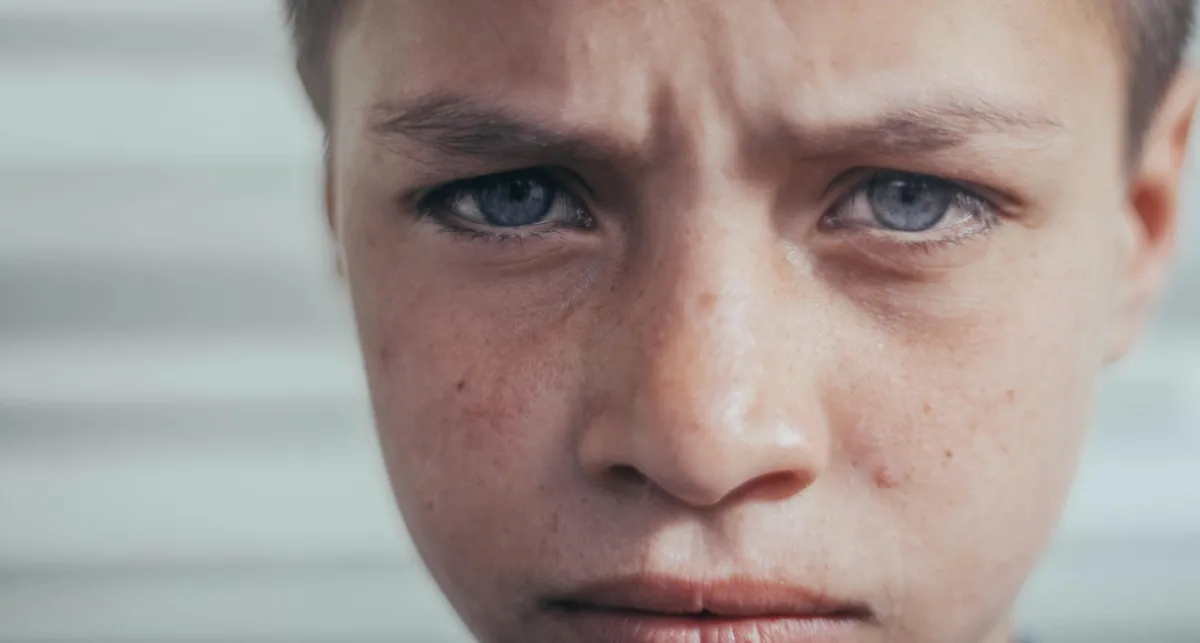Blog

The Silent Wounds of Pastors' Kids: Understanding Ministry Trauma and Healing God's Way
In the ministry world, we often talk about burnout, betrayal, and spiritual warfare facing pastors and their spouses. But there's an entire group of people we don't talk about nearly enough: pastors' kids (PKs).
Pastors’ kids grow up under unique pressures. They live in a world where expectations are sky-high — not only from their own parents but from an entire congregation! They are often watched, judged, praised, criticized, and compared in ways most children never experience. And, just like their parents, they encounter real-world trauma — both the personal kind and the ministry kind — but often without the language, support, or acknowledgment they need to heal.
The truth is: pastors’ kids are human, too.
They are made Imago Dei — created in the image of God — with built-in needs for safety, belonging, connection, and personal dignity. Their physical, emotional, and spiritual needs are just as real and God-designed as anyone else's. When these needs are chronically ignored, minimized, or spiritualized away, the effects can be devastating.
Studies show that chronic neglect of basic emotional needs leads to increased rates of anxiety, depression, physical health issues, relational struggles, and faith crises. Pastors' kids are not immune to these outcomes just because they were raised around the church.
The Trauma That Pastors’ Kids Carry
Many PKs experience a slow, cumulative form of trauma. It's not always the trauma of a catastraphic event (though some face maltreatment such as abuse, church splits, or forced termination). More often, it's theirs is the cumulative trauma of death-by-a-thousand-papercuts trauma:
Watching their parents be mistreated, discarded, or never have time for them because they're always required to be at yet another church event.
Feeling pressure to perform or behave perfectly for the sake of their parents' or church's image.
Living under the weight of unspoken expectations and microscopic lens with everyone else telling them who to be and what they should be doing.
Losing their friends and the only life they've ever known overnight after a pastoral termination or church betrayal.
Ministry trauma impacts the whole family. When a church mishandles conflict, mistreats leadership, or prioritizes image over health, the pastor’s kids experience the fallout firsthand. They are forced to navigate profound grief, confusion, and often a shattered sense of trust — not just toward people, but sometimes toward God Himself. This is difficult enough for adults; for youth, it can have lasting eternal effects.
Many PKs feel unable to voice their pain because of internalized messages like:
"You should be ready to sacrifice all for Christ."
"Sheep bite." (Implied: get over it.)
"If I speak up, it will hurt the church, my parents, or God's reputation."
"Good Christians just move on and forgive."
The result? Silent suffering. A deep sense of disconnection. A belief that their pain is too small, selfish, or shameful to name.
But trauma needs acknowledgment to begin to lose its power.
When we pretend it didn't hurt, when we tell ourselves it shouldn't matter, when we pressure ourselves (or our children) to "just move on," we actually drive the wound deeper.
Healing for Pastors' Kids (and Their Parents)
The healing journey starts with two critical shifts:
1. Permission to be human.
You — and your kids — were never meant to be untouchable, superhuman ministry machines. Jesus Himself experienced exhaustion, betrayal, sadness, anger, and sorrow. Being human means having limits. It means feeling pain. It means needing rest, connection, and care.
2. Prioritize their pain.
Your children didn't have a choice in entering ministry - they were born into it. When a PK begins exhibiting difficulties mentally, emotionally, and spiritually, it's often months, if not years, after the root of the pain began. They need YOU, the adult, to step up, clear your schedule as you are able to, and invest in their healing.
Give them your time - extra time.
Give them your patience - extra patience. (This is not the time for more rules and regulations to be place on top of them.)
Give them your compassion & comfort.
Give them your protection - speak up for them.
Their healing will require your intentional presence, not your perfection. Healing for pastors' kids happens when we begin to acknowledge the real impact of ministry trauma and offer true compassion instead of shame.
Here’s a simple model for helping ourselves and our children move toward healing:
The ABCS of Healing:
Acknowledge the story. (Name what happened without minimizing it.)
Believe the story. (Trust that the pain is real and deserves attention.)
Compassion and Comfort. (Move toward the hurting heart with tenderness.)
Support healing for the whole person. (Mind, body, soul, and relationships.)
If we want pastors' kids to thrive — not just survive ministry life — we have to make space for them to be human. We have to normalize talking about pain. We have to model getting help. And most importantly, we have to remind them (and ourselves) that God's heart is for healing, not just for everyone else, but for them, too.

